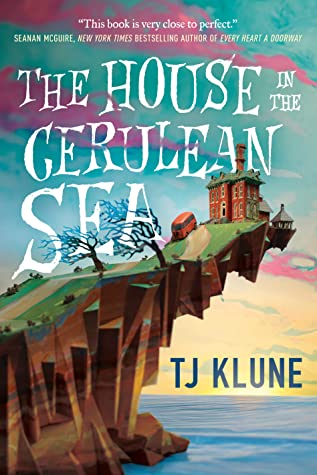"The House in the Cerulean Sea" review
Overview
Title: The House in the Cerulean Sea
Author: T.J. Klune
Subgenre: Young adult
2021 Bingo squares: Found family,
Recommend: No. No one should read this.
Stars: 1/5
Review
My first reaction to The House in the Cerulean Sea was that it was an overly-sweet story that was objectively pretty good but just not for me. I would have rated it 4/5 or so with a personal enjoyment of maybe 2/5. But then I read this review on Goodreads about how according to the author it’s directly inspired by Canada’s Sixties Scoop, and both my overall and personal ratings changed to 1/5, in agreement with that rating.
I want to eventually reread this novel and write a longer essay about just how unacceptable specific aspects of this novel are, but I will leave a couple here. The review I linked does a good job of explaining why it’s not okay to be inspired by a genocidal event to write a beautiful, heartwarming found family story, so I’m just going to leave some of the chilling parallels that remain in the text.
- The Native woman who doesn’t register, but it’s okay, because she gives up her land to use by the government. The lesson here is that as long as Native people don’t maintain ownership of anything that could be valuable to the invading government, they may retain their identity and autonomy, and not register.
- There is no need for Native people to petition the government themselves, they should let white people do it for them.
- There is absolutely no need to ever work outside the system, just trust the bureaucratic process to resolve things themselves.
- At no point in time does the white, bureaucratic government official make any kind of personal sacrifice. He was unhappy, and then he goes to the underfunded school and spends time with the Native/magical kids, and then he’s happy. There’s no sacrifice here. There’s no fighting for affirmative action or funding at the cost of his own kids' chances of getting into the college they want or anything.
- We never question the fundamental existence of the residential schools overall. There’s like one case? Of finding out whether it makes sense for the kid to be there? But not a blanket examination of whether kids should be sent to the schools rather than staying with their parents?
Anyway, I’m writing this review a while after I read the book, and one day I might reread it just so I can write more about how awful this book really is. Fuck this book.

